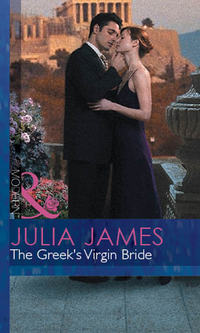
Полная версия
Carrying His Scandalous Heir
The dark, hooded eyes were veiled. ‘Women had no power in those times. And after all,’ he went on, ‘my ancestor’s mistress was very lavishly looked after.’
‘She’s carrying his child,’ Carla retorted.
She could feel an emotion rising up in her—one she did not want to feel, but it was coming all the same.
‘An excellent way to secure the Count’s protection,’ agreed Cesare. ‘I believe they had several children, over the years. He was very faithful to her, you know. Surprisingly so for the times.’
Automatically Carla’s eyes went not to the mistress of the former Count but to his wife. No sign of fertility there—and in the eyes only that haunting sadness.
Thoughts ran through her head, unstoppable.
How did she feel? How did she cope? Knowing her husband was having children, openly, with his mistress? Yet presumably she, too, must have had an heir, at least, or the line would have died out—which it obviously hasn’t?
‘But enough of my ancestors—have you seen the other paintings displayed here yet?’
The voice of the man at her side drew her back to the present. She turned towards him. Saw him with fresh eyes, it seemed. Her gaze went past him to the portrait of Count Alessandro, who had been so unconcerned as to have his wife and mistress painted simultaneously.
A shaft of female indignation went through her, as she brought her gaze back to the current Count.
‘Not all of them yet, no,’ she said. She made her voice purposeful. ‘And I really must. I have fifteen hundred words to write up about the exhibition.’
She named the arts magazine she wrote for, as if she was aware that by stressing her professional interest she would diminish her personal one.
‘And I must do my duty by all the paintings here!’
She spoke lightly but deliberately. She smiled. An equally deliberate smile. One that completely ignored the question he had asked her only a few minutes ago, making no reference to it.
‘Thank you so much, Signor il Conte, for showing me these fascinating portraits, and for giving me such insight into them. It’s always enhancing to learn the origins and the circumstances of a portrait’s creation—it brings it so to life! And especially since the artist Caradino is so seldom exhibited.’
She smiled again—the same social smile—signalling closure. For closure, surely, was essential. Anything else would be...
Her mind veered away, not wanting to think of the path she had not taken. The yielding she had not made.
Instead she gave the slightest nod of her head in parting and walked away. Her high heels clicked on the parquet flooring and as she walked she was intensely conscious of his following gaze, of how her shapely figure was outlined by the vivid tailored dress she was wearing. Intensely conscious of the urge overwhelming her to get away. Just...away.
As she walked, she sipped at her champagne again. She felt the need of it. Her colour was heightened, she knew—knew it from the hectic beating of her heart.
He desires me—the Conte di Mantegna has looked at me and found me pleasing to him...
Into her head sprang an image, immediate and vivid, conjured out of her ready imagination. That woman in the portrait—the brunette—working, perhaps, in her father’s shop, or sweeping floors, or even toiling out in the fields in sixteenth-century Italy... Il Conte passing by, seeing her, liking her beauty, taking a fancy to her. Finding her pleasing to him. Lifting her with one beckoning of his lordly, aristocratic hand out of her hard, poverty-stricken life to dress her in a silk gown and place roses in her hands and jewels around her throat, and take her to his bed...
She felt the pull of it—the allure. Had to force herself to remember all that would have gone with it. The price that woman would have paid.
To know that her place in his life was only ever to be his inamorata—never to aspire to be his wife.
And as for the Count—oh, he would have had everything he wanted. His pale, subservient wife—his compliant, obliging mistress.
Having it all.
She dragged her mind away, making herself inspect the other paintings, consult her catalogue, interview the exhibition’s curator, and then get a few words from the gallery’s director, who greeted her warmly, both in her professional capacity and as the stepdaughter of the late chairman of a global hotel chain—a generous patron of the arts himself.
It had been her stepfather who’d first noticed her interest in art as a teenager, and it was thanks to him that she’d studied history of art at prestigious universities both in England and Italy. He’d encouraged her in her journalistic career. It was a career she found immensely satisfying, and she knew herself to be extremely fortunate in it.
Now, with all her notes taken, she was ready to leave. She’d spend the evening going through them, drawing up the article she would write.
As she made her farewells she found herself glancing around. She knew who it was she was trying to glimpse. And knew why she should not be. Cesare di Mondave was far too disturbing to her peace of mind to allow herself to have anything more to do with him.
He was not to be seen anyway, and she told herself she was glad. Relieved. Because to further her acquaintance with Cesare di Mondave would not be good sense at all.
Involuntarily her eyes went to the portrait of his ancestor—Count Alessandro, regarding the world in all his High Renaissance splendour, his dark gaze compelling, arrogant. In her mind’s eye she saw his wife and his mistress. Two women, rivals for ever, their destinies yoked to the man who had commissioned their portraits.
Had they both loved him? Or neither?
The question hovered in her head, its answer long consumed by the centuries that had passed. All she could know, with a kind of ironic certainty, was that it would not be wise for any woman to have anything to do with the man in whose veins ran the blood of Luciezo’s Count Alessandro.
It didn’t matter that his descendant could have an impact on her that she had never encountered before. That his dark lidded eyes could raise her pulse in an instant...that her eyes had wanted only to cling helplessly, hopelessly, to his sculpted, powerful features, that her hand had yearned to reach towards him, graze the tanned skin of his jaw, brush the sensual swell of his mouth... It didn’t matter at all.
Because letting herself get embroiled with the arrogant, oh-so-aristocratic Count of Mantegna would be folly indeed!
She was not, and never would be, like the lush beauty in the Caradino portrait, haplessly dependent upon the Count’s continuing desire for her, fearing its demise. Her lips thinned slightly. Nor could she ever be like the woman in the other portrait—oh, she might move in Roman high society, but the Viscaris were hoteliers: rich, but with no trace of aristocratic blood. Carla knew without flinching that when il Conte chose a wife, it would be a woman from his own background, with an ancestry to match his.
I would be nothing more than an...an interlude for him.
She walked out onto the pavement and into the warm evening air of Rome in late summer. A low, lean, open-topped car was hovering at the kerb, blatantly ignoring the road signs forbidding such parking. Its powerful engine was throbbing with a throaty husk, its scarlet paintwork was gleaming, and the rearing stallion on the long bonnet caught the light, glinting gold like the crested signet ring on the hand curved around the wheel.
The man at the wheel turned his head. Let his dark, lidded gaze rest on Carla.
‘What kept you?’ asked Cesare di Mondave, Conte di Mantegna.
CHAPTER TWO
CESARE’S HAND RESTED on the leather curve of the steering wheel. Impatience was humming in him. He appreciated that she had a job to do—this woman his eyes had lit upon, drawn without conscious intent to her dramatic beauty, her voluptuous figure, the extraordinarily dark blue eyes that had a hint of violet in them—but for all that he did not care to be kept waiting.
He’d known who she was before he’d made the decision to approach her—he’d seen her about previously in society, even though the aristocratic circles he moved in overlapped only loosely with those of the Viscaris. The Viscaris were, to him, ‘new money’—it was a mere handful of generations since the global hotel group that bore the family name had been founded at the end of the nineteenth century. They were newcomers compared to the immense antiquity of his family—and Cesare felt the weight of that antiquity upon him each and every day.
It was a weight that both upheld him and imposed upon him responsibilities to his ancestry that others could not understand. A duty that reached far back into the Middle Ages, stretching across all his estates from the high Apennine lands leased as a national park, to forests and vineyards, agricultural land and olive groves, and across all his many properties. Every palazzo was a historic monument, including the magnificent baroque Palazzo Mantegna here in Rome, now on loan to the nation and housing a museum of antiquities. And all those estates and properties came with tenants and employees whose livelihood he guaranteed—just as his ancestors had.
Yet at the heart of it all was the ancient Castello Mantegna, the heart of his patrimony. Within its mighty walls, built to withstand medieval warfare, he had spent his childhood, roaming the forests and pasturelands that one day would be his.
Was that something anyone not born to such a heritage could truly understand? The weight of inheritance upon him?
Or did they merely see il Conte—a wealthy, titled man who moved in the uppermost echelons of society, with a cachet that many would only envy? And which women would eagerly seek to bask in...
His dark eyes glinted. There had been no such eagerness in Carla Charteris, though he’d made clear his interest in her. He was glad of it—but not deterred by it. For his long experience of woman had told him immediately that the first flare of her violet-hued eyes as he’d addressed her had showed that she was responsive to him. That was all he’d needed to know—their barbed exchange thereafter had merely confirmed it. All that was required now was for her to acknowledge it.
He leant across to open the passenger side door. ‘Prego,’ he invited in a pleasant voice.
He’d surprised her—he could tell. Had she really believed that walking away from him would discourage him?
He went on in a dry voice, ‘It would gratify me if you complied without delay, for the traffic warden over there—’ he nodded carelessly along the street to where such an individual had recently turned the corner ‘—would so very much enjoy booking me.’ He gave a brief sigh. ‘I find that officials take particular pleasure in exercising their petty authority when their target is driving a car like this one.’
He smiled. He could see the conflict in her eyes—in those amazingly dark violet-blue eyes of hers—but above all he could see that same flare of awareness, of desire, which had been in them when he’d first approached her. That told him all he needed to know.
His expression changed again. ‘Carpe diem,’ he said softly. His eyes held hers. Tellingly, unambiguously. ‘Let us seize all that we may have of this fleeting life,’ he murmured, ‘before we are dust ourselves.’
His casual reference to her own comment in front of the Luciezo was accompanied by an exaggerated gesture of his hand as he again indicated the seat beside him.
His lashes dipped over his eyes. ‘What is so difficult,’ he murmured, ‘about accepting an invitation to dinner?’ His gaze lifted to hers again, and in his eyes was everything that was not in his words.
Carla, her expression immediately urgently schooled, stopped in her tracks on the pavement, felt again that incredible frisson go through her whole body—that shimmer of glittering awareness of the physical impact he made on her.
All around her the city of Rome buzzed with its familiar vitality. The warmth of the early evening enveloped her, and she could hear the noise of the traffic, the buzz of endless Vespas scooting past. The pavement was hot beneath the thin soles of her high heels. While in front of her, in that outrageously expensive car—as exclusive and prestigious as its driver so undoubtedly considered himself to be—the oh-so-aristocratic Conte invited her to join him.
As she had before, in the gallery, she felt the overwhelming impact of the man. Felt even more powerfully the impulse within her to give him the answer that he was waiting for.
Thoughts—fragmented, incoherent—raced through her.
What is happening to me? Why now—why this man of all men? This arrogant, lordly man who is scooping me up as if I were no more than that woman in the portrait—scooping me up to serve his pleasure...
Yet it would be for her pleasure too—she knew that with every shimmer in her body as she stood, poised on the pavement, feeling the weight of his lidded gaze upon her. That was the devil of it—that was the allure. That was the reason, Carla knew with a kind of sinking in her heart, that was keeping her here, hovering, just as he was keeping that monstrous, powerful car of his hovering, its power leashed, but ready to be let forth.
His words, mocking her, echoed in her head. ‘What is so difficult about accepting an invitation to dinner?’
His voice—deep, amused—cut across her tormented cogitations. ‘You really will need to decide swiftly—the warden is nearly upon us.’
The uniformed official was, indeed, closing fast. But Carla’s eyes only sparked deep blue. ‘And you couldn’t possibly afford the fine, could you?’ she retorted.
‘Alas, it is a question of my pride,’ Cesare murmured, the glint in his eye accentuated. ‘It would never do for il Conte to put himself in the power of a petty bureaucrat...’
Was he mocking himself? Carla had the suspicion he was not...
For a moment longer every objection she had made when he’d first invited her to dinner flared like phosphorus in her head. Every reason why she should give exactly the same kind of answer as she had then—evasive, avoiding the invitation—then walk briskly away, back to the comfortable, predictable evening she’d planned for herself in her own apartment. Making herself dinner, going through her notes in preparation for writing her article. An evening that had nothing, nothing to do with the man now waiting for her answer...
And yet—
Her own thought replayed itself in her head. How dangerous might it be to light a passion that could not be quenched?
But other thoughts pushed their way into her head. Thoughts she did not want to silence. Could not silence... Desire and passion will burn themselves out! They cannot last for ever.
Neither desire nor passion was love.
Yet both were powerful—alluring—speaking to her of what might be between them.
Passion and desire.
The same tremor went through her, the same flush in her skin as when he had first made his desire for her plain, calling from her an answering awareness. No other man had ever drawn from her such an overpowering response.
For a second longer she hesitated, hung between two opposing instincts.
To resist that response—or to yield to it.
The dark, lidded eyes rested on her—holding hers.
With a sudden impulse, impelling her way below the level of conscious decision, she felt her muscles move as if of their own volition. She got into the car, slamming the door shut.
Instantly, as if preventing her from rescinding her decision as much as avoiding the attentions of the parking official, Cesare opened the throttle, pulled the car away from the kerb—and Carla reached for her seat belt, consciousness rushing back upon her in all its impact.
Oh, dear God, what the hell had she just done?
I got into his damn car just to save his damn aristocratic pride! So he wouldn’t have to endure the ignominy of getting a parking ticket! How insane is that?
Completely insane. As insane as letting Cesare di Mondave drive off with her like this—the lordly signor scooping up the peasant girl.
Her chin lifted. Well, she was no peasant girl! She was no poor, hapless female like the one in the portrait, trapped within the punishing limitations of her time in history. No, if she went along with what this impossible, arrogant man had in mind for her—if, she emphasised mentally to herself—then it would be what she wanted too! Her free and deliberate choice to enjoy the enticing interlude he clearly had planned.
But would she make that choice? That was the only question that mattered now. Whether to do what every ounce of her good sense was telling her she should not do—and what every heat-flushed cell in her body was urging her to do. To resist it—or yield to it. She turned her head towards him, drawn by that same impetuous urge to let her eyes feast on him. He was focussing only on the appalling evening traffic in Rome, which, she allowed, did need total focus. She let him concentrate, let herself enjoy the rush that came simply from looking at his profile.
Sweet heaven, but it was impossible not to gaze at him! A modern version of that Luciezo portrait, updated for the twenty-first century. Indelibly graced with features that made her eyes cling to him, from the strong blade of his nose to the chiselled line of his jaw, the sensual curve of his mouth. She felt her hands clench over her bag. Weakness drenched her body. What she was doing was insane—and yet she was doing it.
She felt her pulse leap, and a heady sense of excitement filled her. A searing knowledge of her own commitment. Far too late now to change her mind.
And she did not want to—that was the crux of it. Oh, the lordly Count might have scooped her up just as arrogantly as his ancestor had scooped up the peasant girl who would become his mistress, but it had been her choice to let herself be so scooped.
Rebelliousness soared within her—a sense of recklessness and adventure.
I don’t care if this is folly! All I know is that from the moment he looked at me I wanted him more than I have ever wanted any man—and I will not deny that desire. I will fulfil it...
Fulfil it with all the ardour in her body, every tremor in her limbs. It was folly—reckless folly—but she would ignite that passion and burn it to the core.
* * *
‘Take the next left here,’ Carla said, indicating the narrow road in the Centro Storico that led down to her apartment, part of an eighteenth-century house. It was a quiet haven for her to write in, and to be well away not just from the buzz of the city but also from the tensions running across the Viscari clan.
Her mother, she knew, would have preferred her to stay on in Guido Viscari’s opulent villa, but thanks to her stepfather’s generosity in his will Carla had been able to buy her own small but beautiful apartment, taking intense pleasure in decorating it and furnishing it in an elegant but comfortable and very personal style.
However, her thoughts now were neither on the ongoing tensions in the Viscari clan nor on her apartment. There was only one dominating, all-encompassing consciousness in her head...
Cesare.
Cesare—with whom she had just dined, with whom she had conducted, she knew, a conversation that had taken place at two levels. One had seen him being the perfect escort, the perfect dinner companion, conversing with her about her job, about the arts, about the Italian landscape—of which he owned a significant proportion—and about any other such topics that two people making each other’s acquaintance might choose to converse about.
He’d asked her a little about herself—neither too little to be indifferent, nor too much to be intrusive. He’d known who she was, but she was not surprised—she’d known who he was, though they’d never chanced to meet before.
But there’d been another conversation taking place as they’d sat there over a lingering dinner in the small, ferociously exclusive restaurant Cesare had taken her to—where he had immediately been given the best table in the house, and where they had been waited on attentively, discreetly, unobtrusively but with absolute expertise.
He had nodded at one or two other patrons, and her presence had caused the lift of an eyebrow from one group of women, and a penetrating glance, but no more than that. She had been acquainted with no one there, and was glad of it. Glad there had been no one she knew to witness the second level of the conversation taking place between herself and Cesare di Mondave, Conte di Mantegna.
The conversation that had taken place powerfully, silently and seductively—oh-so-seductively—between him and her, with every exchange of glances, every half-smile, every sensual curve of his mouth, every lift of his hand with those long, aristocratic fingers.
The light had reflected off the gold of his signet ring, impressed with his family crest—the same lion couchant that his ancestor had displayed on his own ring in the Luciezo portrait—and Carla had found herself wondering if it could be the very same ring.
Eventually Cesare’s hand had crushed the white damask napkin and dropped it on the table to signal the end of their meal, and they’d got to their feet and made their way towards the exit.
Nothing so crude as a bill had been offered by the maître d’—nothing more than a respectful inclination of the head at their departure, a gracious murmur of appreciation from the Count, a smile of thanks from herself as they left, stepping out onto the pavement, where his car had been waiting for them.
Now, as they drew up at the kerb by her apartment, he cut the engine and turned and looked at her, an enigmatic expression visible in the dim street light.
Her consciousness of his raw physical presence seared in her again. She smiled at him. ‘Thank you,’ she said, ‘for a lovely evening.’ Her voice was bright, and oh-so-civil.
She realised she’d spoken in English. They’d gone in and out of Italian and English all evening, for the Count’s English was as fluent as her Italian had become in the ten years she’d lived in Rome, though surely no Englishman could make his native language as seductive, as sensual as an Italian male could make it sound?
But English was the right language for this moment. Crisp, bright and utterly unseductive. The polite, anodyne description of something that had been so much more. She reached out her hand for the door release, her body still turned towards him.
A smile curved his mouth, long lashes dropping over his lidded eyes. ‘Indeed,’ he agreed.
She could hear the amusement in his voice, feel it catch at her, making her breathless, her pulse quicken.
‘And after such a “lovely evening”...’ his amusement was deeper now, his accented English doing even more to make her breathless ‘...there is only one way to end it, no?’
For an instant he held her gaze in the dim light, daring her to accept, to concede, to do what he wanted her to do—what he’d wanted of her from the first moment he’d set eyes on her.
‘Like this,’ he said.
His hand stretched out, long fingers tilting up her face to his as his mouth lowered to hers. Slowly, sensuously, savouring. With skill, with expertise, with a lifetime of experience in how to let his lips glide over hers, his mouth to open hers to his, to taste the sweetness within. As soft, as sensual as silk velvet.
She drowned in it. A thousand nerve endings fired as he made free with her mouth, his long fingers still holding her. And when he had done he released her, drew back his hand, let it curve around the driving wheel.
He smiled. ‘Buone notte,’ he said softly.
For a moment—just a moment—she was motionless, as if all the shimmering pleasure he’d aroused in her with only a single kiss had made it impossible for her to move. She could do nothing except meet that amused, lidded gaze resting on her like a tangible pressure.
Then, with a little jolt, she pushed open the car door. Swallowed. In a daze she got out, fumbled for her keys, found them and shakily inserted them into the lock of the outer door of her apartment building. Then she made herself turn to look back at him. Bade him goodnight in a voice that was no longer bright and crisp.










